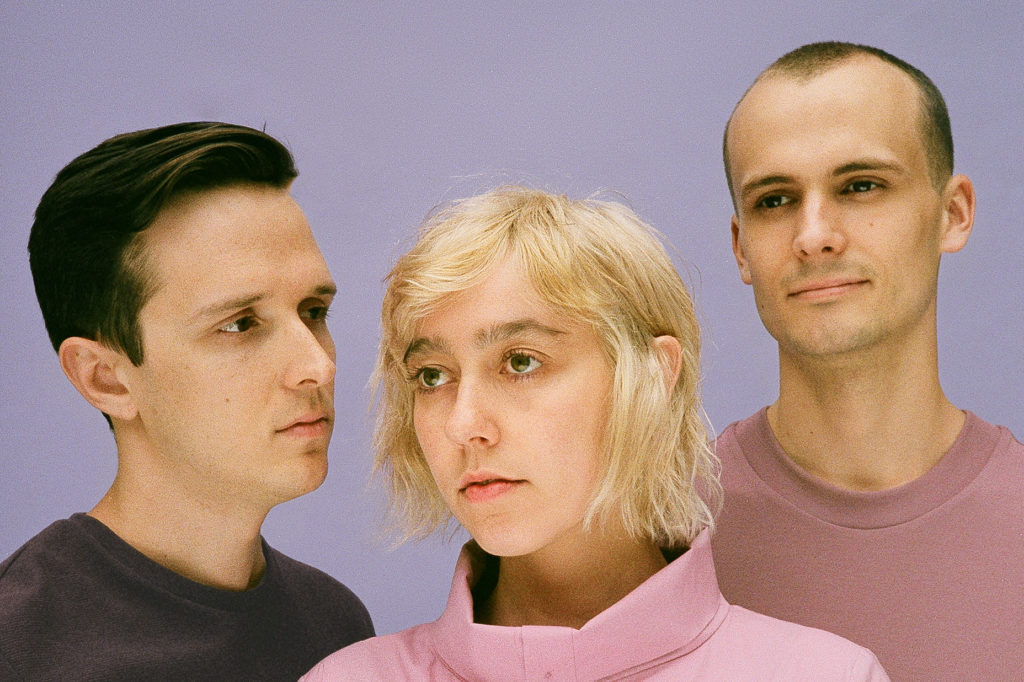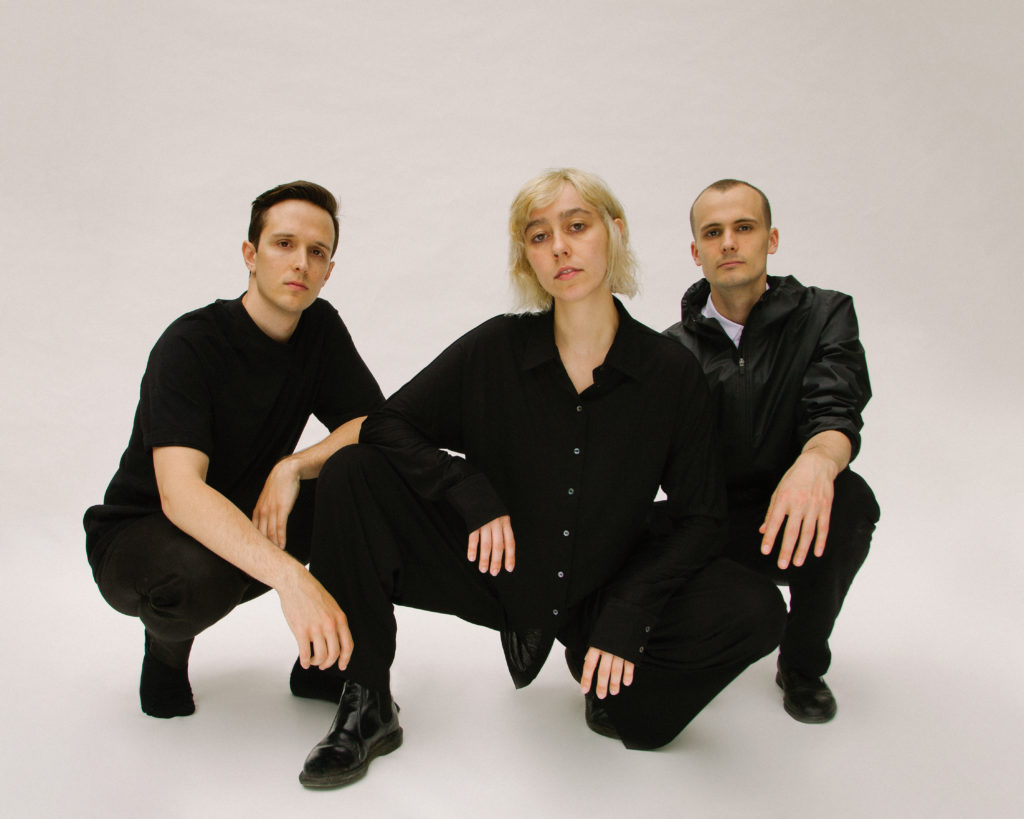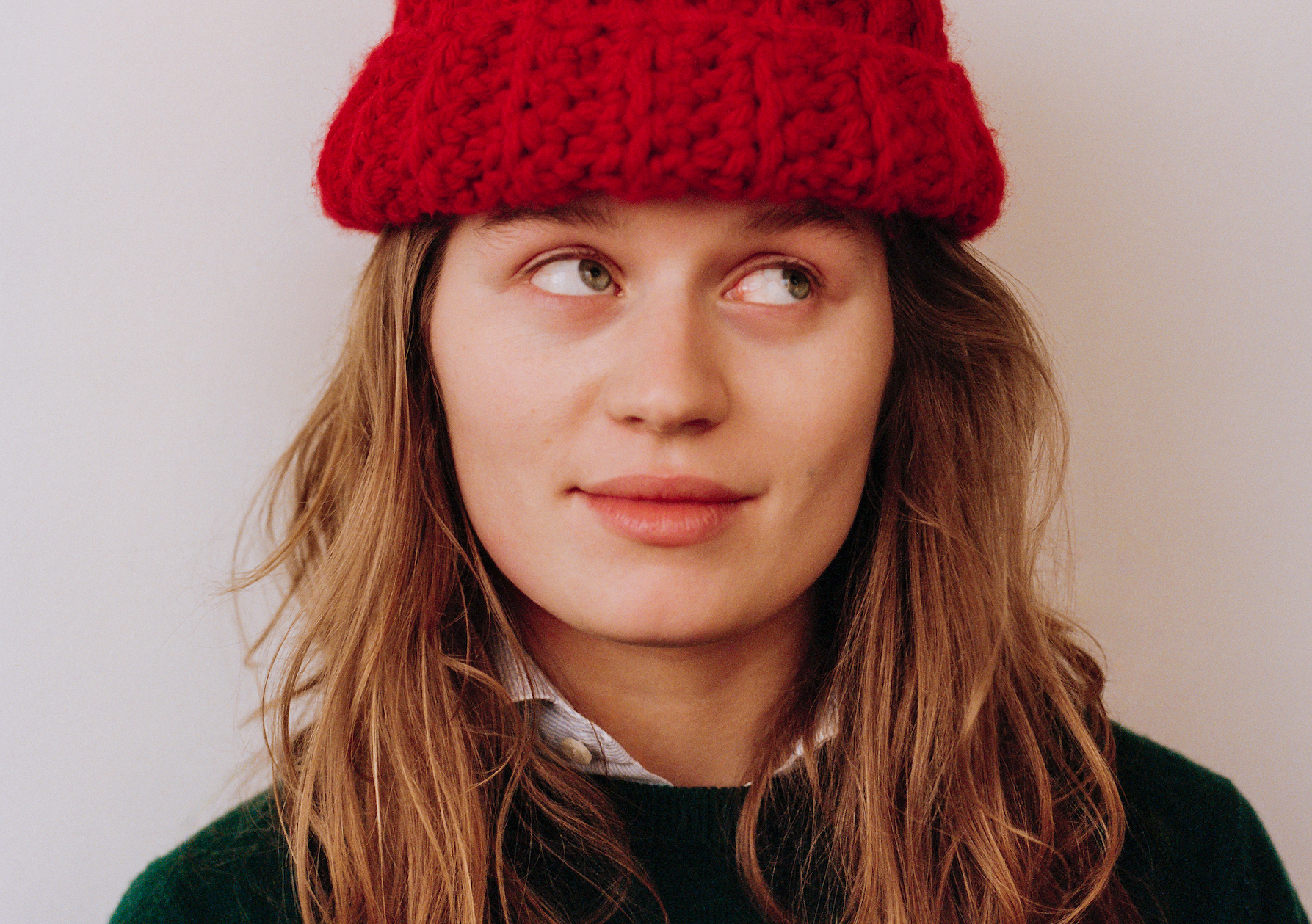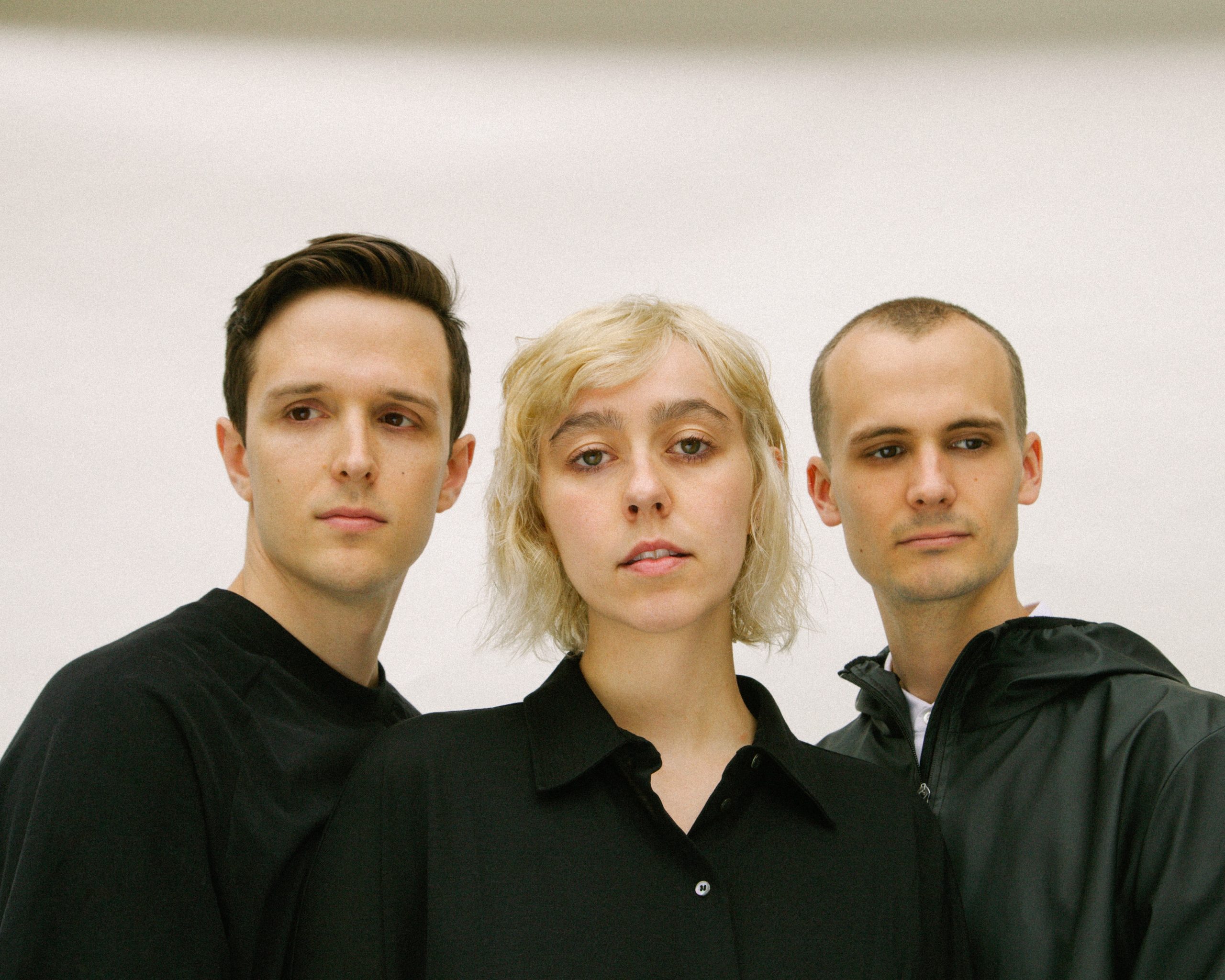Foto © Melissa Gamache
Braids sind endlich zurück und präsentierten uns am Freitag ihre neue Platte Shadow Offering. Wieder überraschen sie die Fans mit einem neuen Sound – glatt, wuchtig, ja beinahe theatralisch – und zugänglich wie nie. Aber natürlich befindet sich die Band auch Mitten in der aktuellen Pandemie. Wir haben mit Raphaelle und Austin über das World Wide Wide geschrieben, über diese veränderte Lebensrealität, das neue Album und die Pläne für die Zukunft.
First of all: how are you, how did you experience the outbreak of this worldwide crises and what is the situation in Canada at the moment?
Raphaelle: Doing Okay thanks. I guess there are a couple different worldwide moments going on right now. The COVID -19 pandemic and the Black Lives Matters movement, which is demanding us to confront our white privilege, the systemic racism within our society, the police brutality, and white supremacy to name a few. 2020 thus far has indeed been challenging but is offering us the opportunity to address the health disparities, the climate crisis and racial injustice. I’m all in…we need change. Canada is just starting to relax isolation requirements, which has been confusing yet uplifting, and we are having a hard look at our own racism as a country. There have been a lot of protests here in Montreal which has been encouraging to see and be a part of.
What is your first memory of a contact with music? And when did you start to play music?
Raphaelle: My first distinct memory is when i was 6 years old, and singing in a Christmas choir. We were singing “Silent Night” and I remember being in the back row and getting the craziest goosebumps and tingling all over my body. I was totally transported.
I started to play music in grade 7. I chose the clarinet and thus started my fate as a nerd.
We read that pop music is one of the most important influences that you have – which was the first act that did have an impression on you and why?
Raphaelle: MYA – This song Case Of The Ex was very important to me. I remember learning this dance in my bedroom with a broomstick when I was like 10.
A lot of people have prejudices towards pop music, as they think it’s soulless, just about money or wants to be simple, so that everyone likes it. What do you think about those prejudices and what do you like about pop music?
Austin: Pop music, like all other forms of music has real hits and real misses. There is soulless music from every decade, in every genre, and I don’t think a songs greatness or validity is tied to its Genre. Inversely some of the most impactful and memorable music of all time are Pop hits. Critically, Pop music has gotten a bad reputation because sometimes songs do lose their soul when trying to pander to the mass public, but other times a song harnesses the perfect synergy of pop culture and raw musical talents and greatness happens.
How would you describe your music with Braids and which characteristics of pop music do you see in it?
Austin: We like to think of Braids as highly emotive art rock. We are mostly inspired by the directness of pop music. Its very potent in its delivery. No flab at all. As a band who often writes songs over 5 minutes, we try to embody this potency but push it outside of the standard song forms. I guess our songs are presented in very vocal forward manner also, which comes from the pop world more than the more rock, experimental or electronic sides of our music.
After your third album Deep In the Iris it took five long years for you to come back and release your new record Shadow Offering – why did it take that long this time and what were you doing in the meantime?
Austin: Following Deep In The Iris’s release we toured internationally for about 18 month and released an EP called Companion. On Shadow Offering, we set out to markedly improve our skills as song writers. This takes time to do! We wrote roughly 40 songs while making this album, just to workshop out group songwriting, and to find a sonic/aesthetic direction that we wanted to focus on. From the day we started writing, this album to the day we finished mixing was 2 years. So yeah, we’ve been busy with touring and making this album, and making a lot of music video for the new songs. We finally had the time and space and support to fully develop a visual identity for our work. Raphaelle’s other band Blue Hawaii also released 2 records, Tenderness and ORIF during this time.
You described your debut once as very angry and that you were upset and feeling the world was unfair in the time of writing, plus with every album you surprised your fans with a new sound or direction of your music – so what is the theme and what can we expect from your new record?
Raphaelle: This sounds like a very young Raph. I was definitely very angry at the time of making our first record. Rightfully so. Very different moment in time being a female musician than it is now. I remember people yelling at me to take my shirt off while on stage. Happy that doesn’t happen anymore. Times have changed.
The theme of this next record is much more hopeful than records prior. This was definitely a conscious effort on my part. I think over the years I have tried to find healing and a certain amount of purpose and forward propulsion in the hardships I have personally faced and in seeing the hardship others have faced. Lyrically I dive into some harder subject matters but try to not leave listeners feel like they’re hanging on a cliff. I tried to bring the lyrics back to solid ground. There’s love, loss, friendship, climate change, white privilege, fear of men, sexism, meditation, all explored on the record.
Can you describe a bit the production process of Shadow Offering, how, when and where it came into life, what was the best/what the worst moment during production and what is the most told anecdote of that time?
Austin: We started writing the songs that make up Shadow Offering in September 2016 and by the summer of 2018 roughly 40 song written. At the time Chris Walla was renting a room at our studio here in Montreal and we had become quite close as friends. We knew that we wanted to enlist help to record this record, so we pared the 40 songs down to a more focused group of about 15 songs and approached Chris to help us record the record. We worked together for a really intense few months of tracking and production at our studio during the summer of 2018. It was our first time every working with an outside engineer/producer so there were obviously growing pains, but luckily Chris is an absolutely golden human being and eventually we all hit a flow of working together. The middle of the tracking sessions got pretty dark for a bit…we kind of lost our selves at sea while working on a song fittingly titled “who am I”, lol. We spent 2 weeks trying to land that song and in the end, needed to take some serious time away from it to recover our energy and return into a state of positive working.
We had some really life changing days both in the studio and out as band while making this record. It spanned 2 full years of our lives so there are so many stories to tell. The day we spent swimming at the Quarry outside Montreal during the Great Solar Eclipse of 2017 was particularity memorable, and it yielded a collective favourite from the album “Eclispe(Ashley)”.
Also the week we spent recording guitars with Chris was pretty eye opening. That man knows a lot about Guitars.
Is there a certain time of day, mood or situation you need to be in to write music? What works best for you?
Austin: SUMMER TIME – warm, sunny, long days in the studio, focused time dedicated to working, blocking out the other distractions of life.
 With this record your sound seems to be bigger, more about instruments, while there are still electronic influences – was this part of the plan for this record and how would you describe your development sound-wise with this record?
With this record your sound seems to be bigger, more about instruments, while there are still electronic influences – was this part of the plan for this record and how would you describe your development sound-wise with this record?
Austin: We wanted listeners to hear the players on the other side of the recording. This was our first time making a record in our new studio which is much larger and has lots of space to house real instruments like pianos, organs, lots of amps and percussion instruments, so we natural were drawn to working with more “classic” instruments. It suited our desires for songwriting better this time around.
Young Buck is one of our favourite songs of your debut – can you let us know what it is about, how it came into existence and if there is a story behind the song?
Raphaelle: Its about lusting after someone who you know is no good for you. Its a moment of laughing at ones self, and finding the humour in sheer infatuation and obsession. I was dating a lot on Tinder at the time of writing this….I highly do NOT recommend it 😉
Snow Angel is another favourite and a monument of a song, with so much layers, different feels and parts – which sometimes reminds of songs by Death Cab (Transatlanticism or I Will Possess Your Heart for example) – was Chris Walla a big influence here or how did the song evolve from the first sketch?
Austin: Chris had a big influence on how we performed this song in the studio; The energy he encouraged us to explore, and how to effectively frame the emotion in the spoken word monologue. The structure of the song, its expansive 9 minute journey was already solidified by the time we started working with Chris though. Its got a classic Braids journey to it. Chris really helped us get the vibe and presentation right. It was a very careful balance of catharsis, honesty and restraint.
I also love how the lyrics of Snow Angel span from feeling down from a night out on your own, to the pollution of the world and how you take part of it. Are you often thinking about your role in this, what means do you have to improve the situation and would you think that the lyrics would be even more drastic if it would have been written in this actual worldwide crisis?
Raphaelle: The intent of having the lyrics switch from reflecting on a sad night out, to the overwhelming and insurmountable problems of the world was to display how consistent thoughts of uncertainty surrounding the future of our planet are and identity politics. It’s on everyones mind constantly, or at least for many of the people I know. I am often thinking about the role I play in the future of mother earth and in the future of addressing white privilege and combatting white supremacy and systemic racism. I don’t think the lyrics would be more drastic if it were written now, it might be more meek because life just feels so intense right now that it’s hard to properly reflect and process.
The last release of your other project Blue Hawaii was also already three years ago – are there already plans on a new record and could you describe how the production process is different to what you are doing as Braids, plus how you decide what lyrics / music fits more to Braids or to Blue Hawaii?
Raphaelle: Actually Blue Hawaii released a record last October ! So just a little over a year ago. It’s called ORIF (Open Reduction Internal Fixation) Go check it out ! 😉
There are plans for both bands to have new records coming out. Blue Hawaii has another record coming out probably within the next few months. The approaches are VERY different. In Blue Hawaii the lyrics serve a purpose to have people dance and feel good ! In Braids it’s a lot more confessional and pushing the boundaries of emotions and being very very vulnerable. Everything is very different between the two projects ! It’s hard to know where to begin !
Because of Covid-19 you had to postpone the release of Shadow Offering, was the campaign besides that influenced of the crisis and as usually with a new record out, it’s also part of the plan to play it live, how are your plans on touring at the moment?
Austin: Pretty much everything in the music business has changed since the pandemic. Plans change daily with our label and management as people adjust to the global situation. The things that stay constant are our love of the art, the excitement to support our record as best we can and our commitment to come play for our fans everywhere we can as soon as its dafe to do so. We currently have dates scheduled in Europe and the UK in November/December and we will be there if possible.
You’ve been doing music as a band for more than 10 years now, how did the music industry change during that period in your eyes, what changed for good, what for worse and what’s your plan for the future of Braids?
Austin: Since our first album we’ve seen the global shift from a sales based model to a streaming based model for music listening. The monetization of music has been challenged and that has made it very difficult or most musicians to make any real money from fans listening to their music. The Industry became lopsided with many artists relying on touring and publishing income to sustain themselves, rather than revenue from the record itself. I personally love the democratization of music with the rise of streaming and other digital distribution methods. It means that artists aren’t beholden to gatekeepers to release their music, and they can develop a more streamlined flow from creation to release if they desire. However with so much more music being released every day now, its hard for people to catch the attention of listeners and critics. COVID-19 has given the industry its biggest wake up call in decades. Its highlighting the instability of the current model because so many musicians that rely on tour revenue to make ends meet have been struck with a 12 month minimum forced stop to their earning capabilities. We are taking a big look at the sustainability of the industry now.
Whats next on your schedule?
Austin: Because we cant tour for the next several months we will be working on new music as individuals, as a group, and taking the time to explore other things in life that we often don’t have the time to.
What are you doing when you’re not doing music?
Raphaelle: We all do different things. Austin spends a lot of time in nature, hiking,fishing, camping, taking photos and cooking lots. Taylor works at a record label Arbutus Records as a label manager. He also loves hiking and skateboarding. He reads a lot ! I am very busy doing music all the time but would like to change this and get some more hobbies outside of music ! Before covid I would go out dancing a lot and was taking french lessons. I like to garden and read. I definitely want to do these things more than I am doing now 🙂
What did you learn in 2020?
Raphaelle: Accept uncertainty, always !!
Which song makes you dance every time?
Raphaelle: I wanna dance with somebody (who loves me) – Whitney Houston
How would your Bedroomdisco look like?
Raphaelle: Lots of bubbles everywhere. But bubbles that if they land on your face don’t get in your eyes and string. I would love to walk into a bedroom that had bubbles floating everywhere and really soft sheets with soft lighting and a cool breeze flowing through it.











